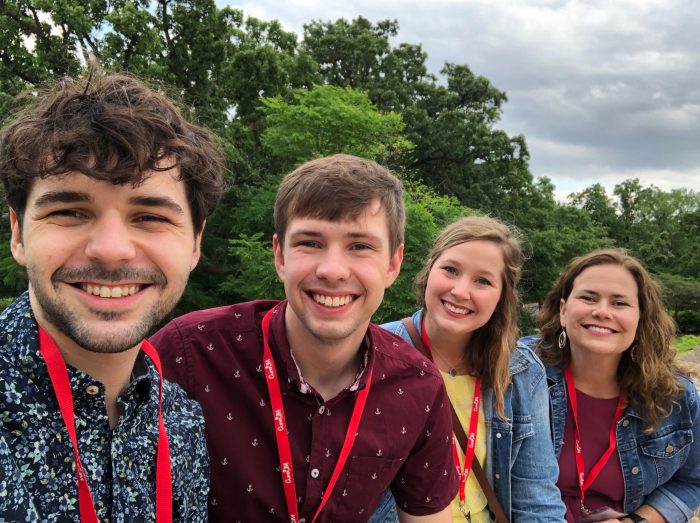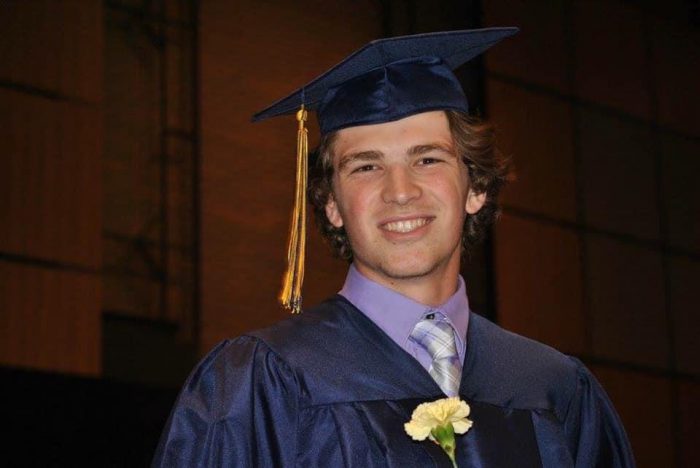Whether it’s spurred up by civil protest, partisan politics, or a Trumpian tweet-storm, recent national dialogues surrounding race and sports have reached a tempermental boil.
It’s even tougher for those on the field.
Former NFL defensive end and Indiana University football star Adewale Ogunleye, having played 10 seasons under the scrutiny of millions of fans, fostered a conversation with assistant professor Lauren Smith’s C218 class on Feb. 26 at the TV & Radio Building.
The 2003 AFC leader in sacks and IU Athletics Hall of Fame member shared perceptions of social issues that affected him during his career, both as a professional athlete with a social platform and as an African-American player before a predominantly white fanbase.
The classroom conversation, starting with former NFL quarterback Colin Kaepernick’s widely known kneeling protest, shifted to personal testimonies from Ogunleye. The Super Bowl player discussed the anxiety he said he feels interacting with police officers while his white peers typically remain unfazed. Ogunleye talked on fans that told him to “shut up and tackle” as a player, as well as his discomfort in seeing a Confederate flag displayed.
“Fans sometimes feel, basically, they don’t want to hear about justice,” Ogunleye said. “‘Those kinds of conversations bother me.’ So why is it you can listen when we’re selling Gatorade, but not listen when we’re speaking on something dear to us?”
Ogunleye, who earned his bachelor’s degree in English from IU in 1999, said that background of critical reasoning and articulation served him well as a professional athlete. His vocal skills earned him a role as a mouthpiece in locker rooms during his time with Miami, Chicago, Houston, and all across the NFL.
“I could articulate my thoughts a lot better than the other guys [in the locker room],” he said. “I just went out and practiced and spoke. These kinds of things helped me speak out [against intolerance].”
The take-home message the Brooklyn, New York native presented, however, was to transcend the emotion of the argument and listen to others, placing reasoning and respect before all else.
“Reach out across the aisle,” he said. “You reaching out may have made their day, and that can be altruism.”
Ogunleye also urged students to travel, if only to gain awareness and perspective from others.
“My charge for you guys: do your best to not offend people, but if someone is offended by you, have a discussion,” Ogunleye said. “It’s OK to disagree, but it’s not OK to hate.”


